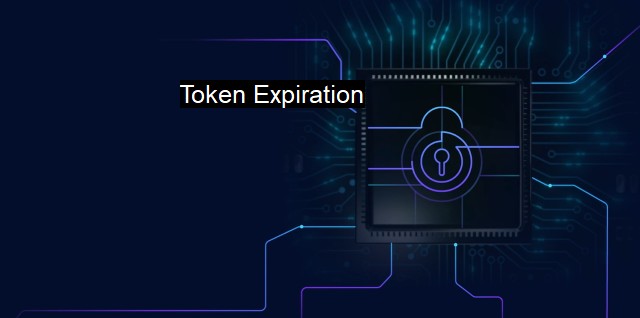What is Token Expiration?
Ensuring System Security with Token Expiration: The Importance and Benefits for Cybersecurity and Antivirus Professionals
Token expiration is a key term within cybersecurity that plays an essential role in the secure handling of digital identities, and can be thought of as the validity period of access authorization tied to a specific digital identity. To understand this, one must first understand what is meant by "token" within the tech world, particularly that of software development and cybersecurity.In information security and programming, a token is a piece of data, digitally authenticated, that is used as part of an identity and access management protocol to authorize or authenticate certain processes or transactions. Tokens are commonly used in environments where particular entities (which can be humans or even automated processes) need to securely authenticate and transmit information in a manner that maintains the integrity and confidentiality of that information.
Tokens are often used for various actions, such as API calls or log-in processes, and they are foundational to many modern cybersecurity approaches, including network access, mobile app validation, cloud computing, and OAuth, which is a key method for authorizing and authenticating access across multiple websites without requiring users to create new accounts for each.
Tokens, like virtually anything in the world of computing and cybersecurity, have a lifespan. This lifespan is called "token expiration", and it is perhaps easier to understand if you imagine a token as a sort of temporary password. Just like a password, the longer a token remains active, the more susceptible it becomes to being compromised or stolen. Token expiration is, thus, a measure intended to manage that risk by limiting how long the token can be used to authenticate or authorize actions.
Expiring tokens is a best-practice within the tenets of cybersecurity, akin to rotating passwords consistently. The expiration ensures that if a third party illicitly acquires a token, they are left with a limited window to exploit it. The shorter the lifespan of a token, the lesser the window of opportunity for attackers, reducing the potential impact of compromise.
Some tokens, often called refresh tokens, may have long lifetimes but are used solely to request new access tokens, essentially booting the old ones and replacing them with fresh tokens, automatically decreasing the likelihood of exploiting these long-lived tokens. Implementing versatility in token lifetimes helps manage an organization's specific risk appetite and the various pros and cons of long- and short-lived tokens.
Token expiration isn't without its own challenges. Constantly changing tokens means more transactions, which may contribute increased computational overheads. if the token expires too quickly, it could degrade the user experience, especially for consumer-facing applications where forced re-authentication due to token expirations might disrupt the user or impair functionalities.
Balancing optimal cybersecurity with efficient performance and user convenience involves looking for a 'sweet spot.' It requires careful consideration of many factors, such as the sensitivity of information being accessed, the risks the token is meant to mitigate, the types of entities (human, automated processes etc.) involved, and even the larger risk profile of the organization or systems in question.
In connection to antiviruses, token expiration helps maintain secure processes by curtailing the window an attacker might have to use a stolen token. Thus, it forms part of the broader basket of cybersecurity measures antivirus uses to keep systems safe. Simply put, antivirus programs seek to stop attacks before they happen, while practices such as token expiration reduce the potential damage in the unfortunate event of a breach. Both exist to preserve the integrity, confidentiality, and availability of systems, and demonstrate the comprehensive and multifaceted nature of effective cybersecurity.

Token Expiration FAQs
What is a token expiration in cybersecurity and antivirus?
In cybersecurity and antivirus, a token expiration refers to the period of time after which a token used for authentication or access control expires and can no longer be used.What are the consequences of a token expiration in cybersecurity and antivirus?
If a token expires in cybersecurity and antivirus, the user may lose access to protected resources or systems, which could lead to a security breach or unauthorized access.How can I prevent token expiration in cybersecurity and antivirus?
To prevent token expiration in cybersecurity and antivirus, users and administrators can renew tokens before they expire or configure automatic token renewal. Additionally, it is important to choose a token duration that balances security with usability.What should I do if my token has expired in cybersecurity and antivirus?
If your token has expired in cybersecurity and antivirus, you should contact your system administrator or security team to obtain a new token or to have your existing token renewed. It is not recommended to try to circumvent or bypass token authentication to gain access to protected resources.| | A | | | B | | | C | | | D | | | E | | | F | | | G | | | H | | | I | | | J | | | K | | | L | | | M | |
| | N | | | O | | | P | | | Q | | | R | | | S | | | T | | | U | | | V | | | W | | | X | | | Y | | | Z | |
| | 1 | | | 2 | | | 3 | | | 4 | | | 7 | | | 8 | | |||||||